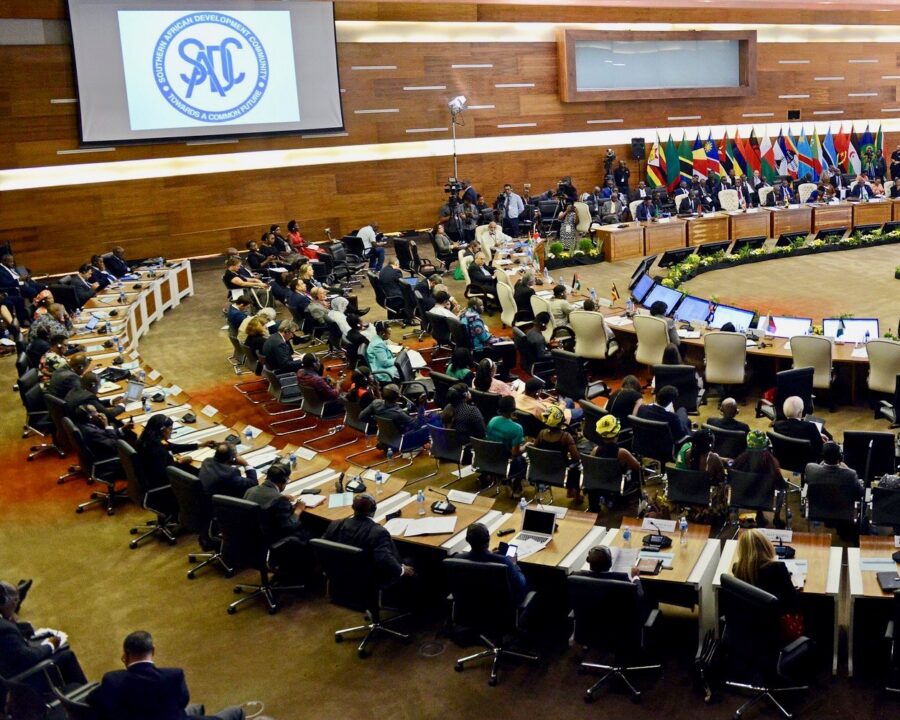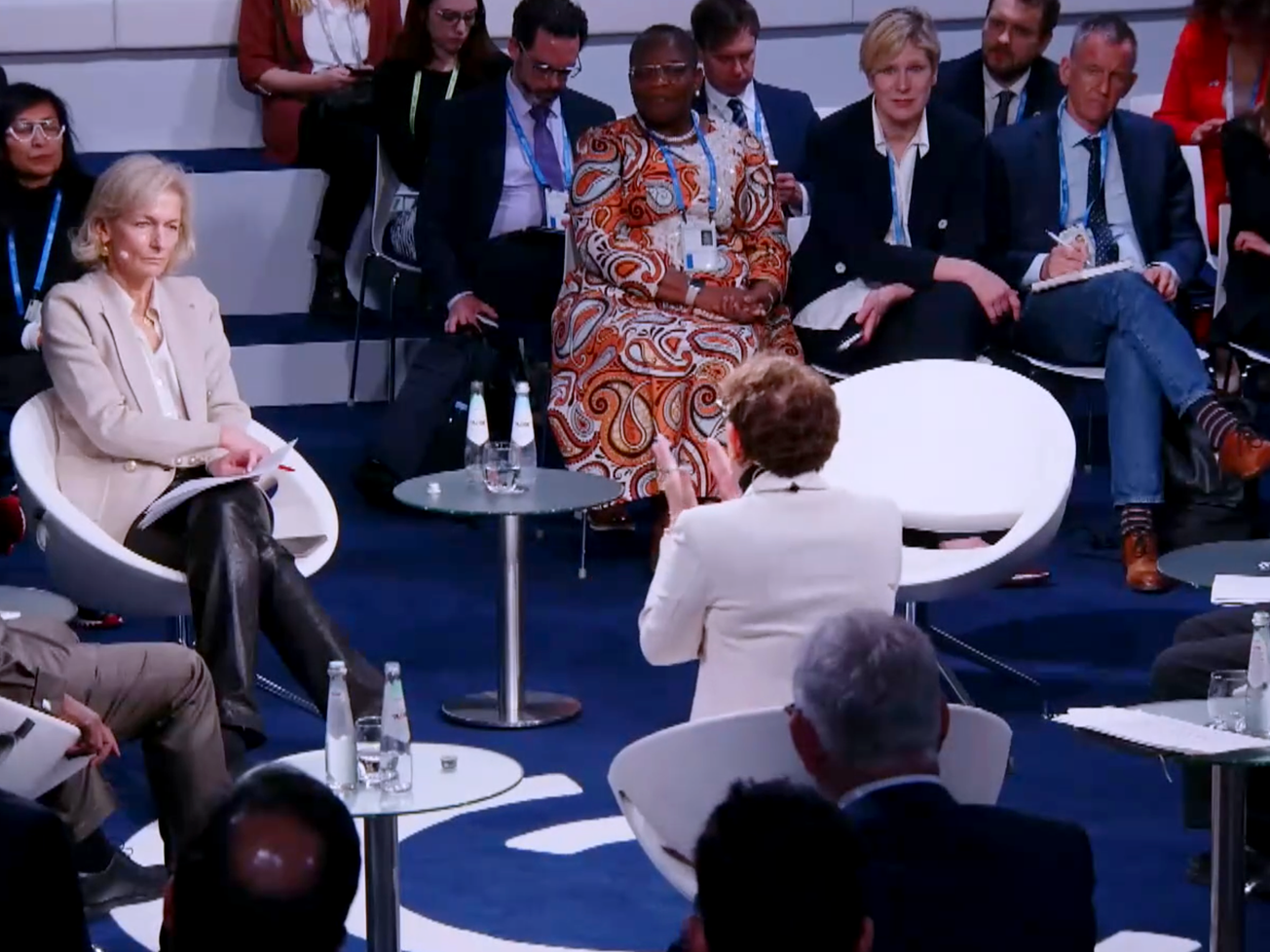Pro-independence leaders in Western Sahara want U.S. President-elect Joe's Biden incoming administration to resolve an apparent contradiction: shifting U.S. foreign policy runs counter to U.N.-led peace efforts in the disputed region.
That new policy, set in motion by U.S. President Donald Trump last month, led to U.S. Ambassador David Fischer's visit on Sunday to Western Saharan port Dakhla "to launch the official process for opening a U.S. consulate facility in Morocco’s Southern Provinces and to demonstrate the U.S. commitment to supporting the region’s economic development," the U.S. Embassy in Morocco said.
“It is such an honor for me to visit this stunningly beautiful and critically important region of Morocco," Fischer said, "and to begin the process of establishing a U.S. diplomatic presence here.”
Morocco took control of Western Sahara in 1975, after Spain withdrew as a colonial power, but the pro-independence Polisario Front, backed by neighboring Algeria, also wanted control of a desert area rich in phosphate and other mineral resources plus offshore oil deposits.
The United Nations brokered a cease-fire between Morocco and the independence movement in 1991, when it launched a peacekeeping mission that now costs US$60 million a year and has 685 personnel. The mission's goal of regional self-determination is reflected in its name: U.N. Mission for the Referendum in Western Sahara, known by its Spanish-language acronym MINURSO.
The Polisario Front controls about a fifth of the Western Sahara, and has long threatened to resume fighting because Morocco did not hold a promised referendum in January 1992 on self-determination for the indigenous Saharawis in the region. It also has long demanded that Morocco agree to certain "confidence-building measures," such as eliminating land mines along the border and improving the human rights situation.
In November, after Morocco sent troops into the U.N.-patrolled buffer zone to reopen an important road for civilian and commercial traffic with neighboring Mauritania, the Polisario Front said it would no longer abide by the 1991 cease-fire.
Then in December, Trump announced the United States "recognizes Moroccan sovereignty over the entire Western Sahara territory," a shift in longstanding U.S. policy that contradicts U.N. Security Council legally binding resolutions approved with U.S. backing. The resolutions call on all nations to "assist the parties to achieve a just, lasting, and mutually acceptable political solution, based on compromise, which will provide for the self-determination of the people of Western Sahara."
Trump did so in exchange for normalized relations between Morocco and Israel, essentially making Western Sahara subservient to Trump's priority of shoring up Arab support for Israel. Trump’s son-in-law, Jared Kushner, helped broker the deal between Morocco and Israel as part of a series of historic accords in which the Trump administration made some major concessions to Arab countries.
On Saturday, Sidi Omar, the Polisario Front's representative at the U.N. in New York, urged Biden, once he is sworn in as president on January 20, to overturn Trump's decision on Western Sahara. Omar suggested the United States cannot legally support Moroccan sovereignty in the region while also backing the U.N.’s role in trying to resolve the conflict.
Biden has an opportunity "to recognize this harmful contradiction," Omar contended on Twitter, both by reversing Trump's decision and by reasserting America's commitment to international law — and to the U.N.-led mediation efforts that have, however, made little progress.
The #UN Security Council is scheduled today to hold closed consultations on #WesternSahara. The Frente #POLISARIO has clearly communicated to the #UN its position on the latest developments. The time has come for the Council to assume its responsibility on the issue and act.
— Amb. Sidi Omar (@SidiOmarNY) December 21, 2020
The twitter account that gave Western Sahara to Morocco (@realDonaldTrump) has now been permanently suspended by twitter. That should give you a hint on the legitimacy of Morocco's claims to Western Sahara. pic.twitter.com/wdPPF91HSg
— SAHARAWI VOICE (@SAHARAWIVOICE) January 8, 2021
'Impartiality required'
U.S. Secretary of State Mike Pompeo said in December the State Department would start establishing a U.S. consulate in the region, where more than a dozen mostly Arab and African nations have also set up diplomatic outposts.
On Saturday, Assistant Secretary of State David Schenker, taking part in a regional tour with stops in Algeria and Jordan, visited two cities in Western Sahara: Dakhla, a center of fishing and tourism that is home to 100,000 people, and Laayoune, administered by Morocco, the biggest in the disputed territory and home to 200,000 people.
Neighoring Mauritania, which has a 1,500-kilometer border with Western Sahara, long maintained a neutral position in the conflict. More recently, though, it appeared to favor Morroco's control, because of a promise of restored trade and free movement in the region.
For decades, the United Nations has led obscure peace talks, occasionally at the secluded Greentree estate in Manhasset, N.Y., away from the sprawling U.N. complex on Manhattan's East Side, between Morocco and the Polisario Front in an attempt to resolve a dispute going back almost half a century.
The 15-nation U.N. Security Council has tried attaching no "preconditions" to the negotiations over the years, even as the conflict gained in importance to Western nations that have sought to pressure North African countries to contain violence in a region that has been linked to al-Qaida and radical Islamists.
On Thursday, Algerian Foreign Minister Sabri Boukadoum received a U.S. delegation led by Schenker to discuss topics including how their bilateral relations have been frayed by the Western Sahara dispute. Algeria opposes Trump's decision on Western Sahara, and it signaled that it also believes the U.S. recognition of Morroco's sovereignty in the region is legally questionable, because it runs counter to Security Council resolutions that demand impartiality in the dispute.
"In this respect," the foreign ministry said on Thursday, "Mr. Boukadoum stressed the nature of the role expected of the United States to advance the causes of peace at both regional and international levels, in the impartiality required by current challenges."







